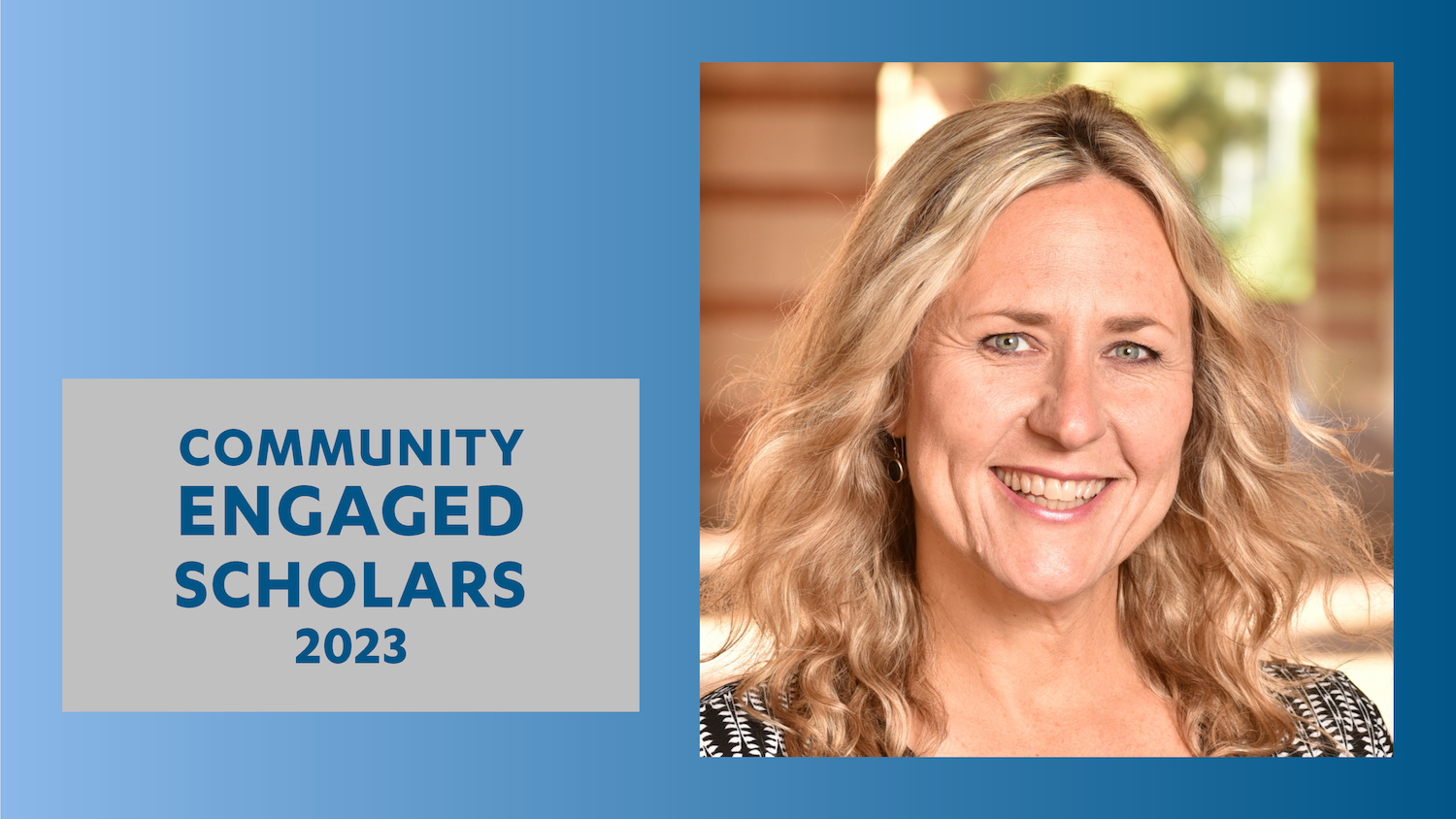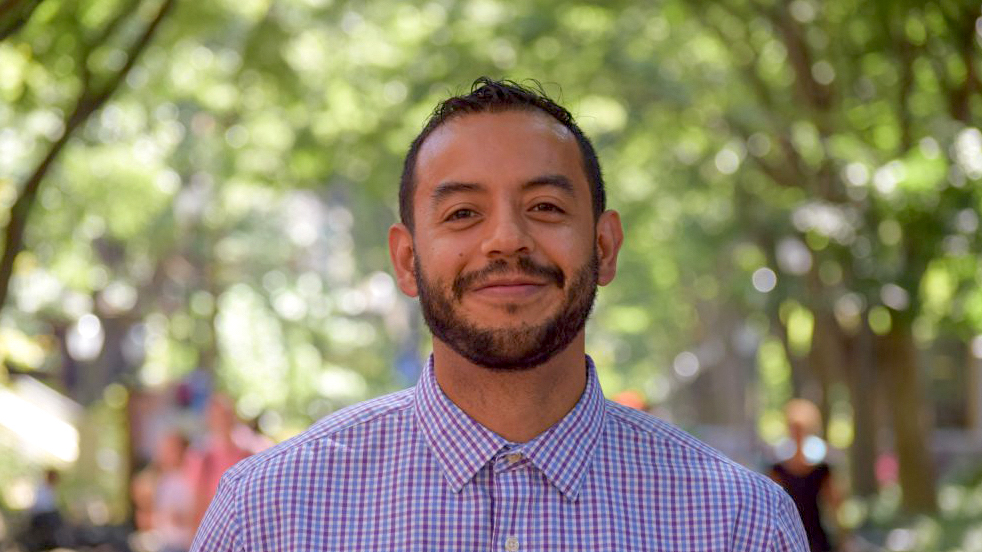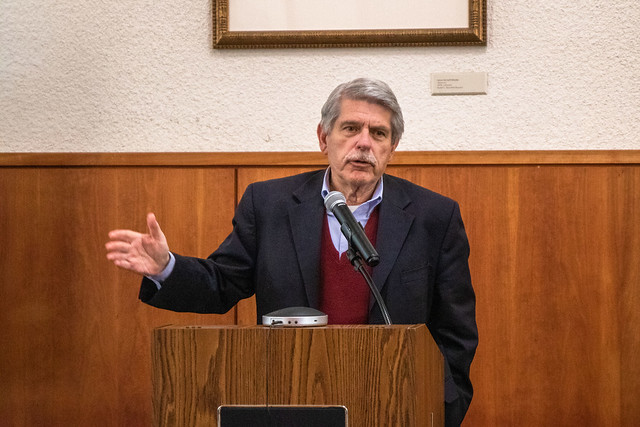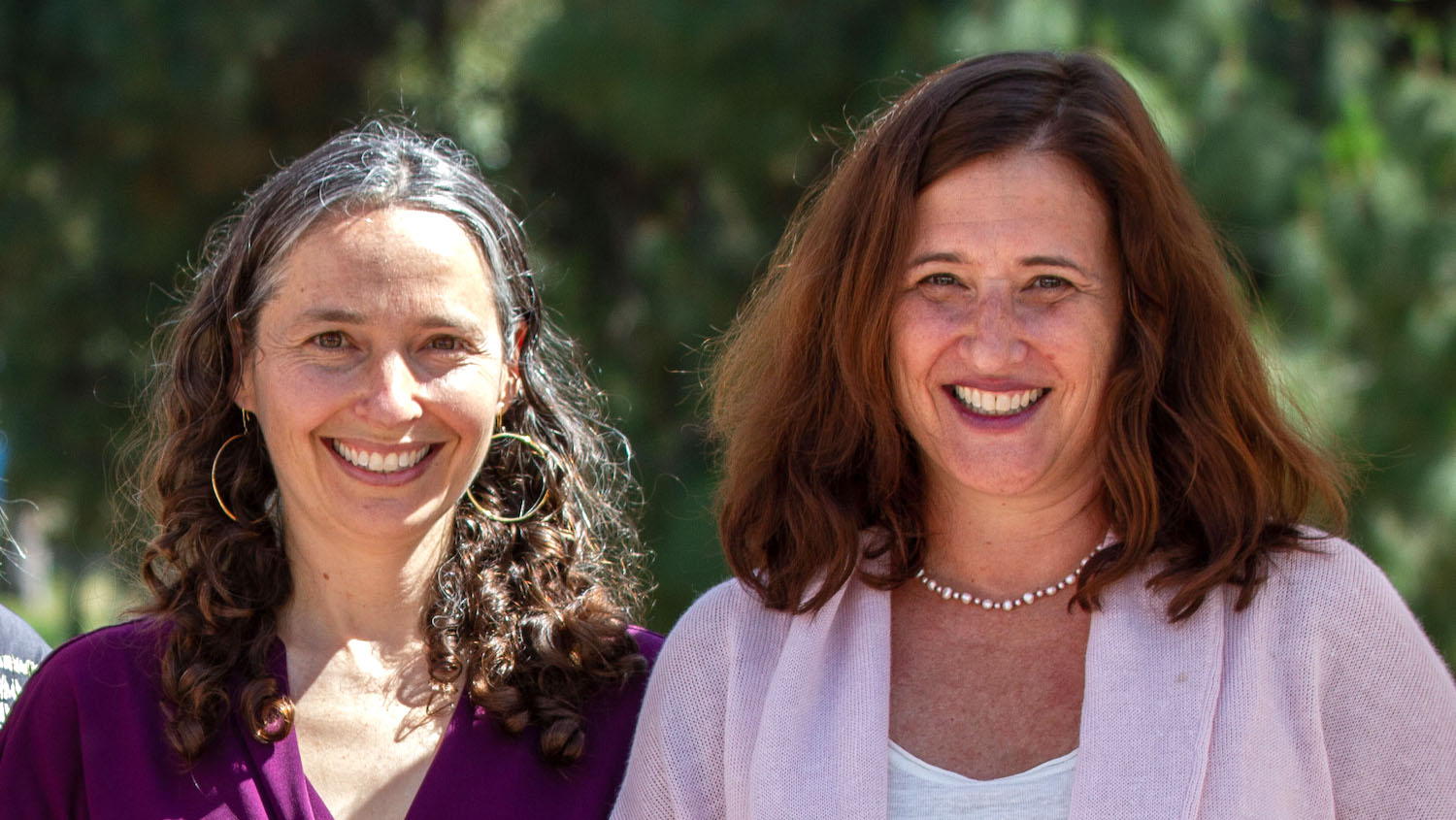
UCLA Scholars Earn Contract to Re-Envision Care for Young People in the Juvenile Legal System
Two UCLA professors will help California create standards of care for young people moved to county-run programs after the closure of the statewide juvenile prison system. With a three-year, $1 million contract from California Health & Human Services’ new state Office of Youth and Community Restoration, Laura Abrams of UCLA Luskin Social Welfare and Elizabeth Barnert of the UCLA David Geffen School of Medicine will help design a program called Stepping Home. Its aim is to provide a suite of services and support for youth held accountable for serious crimes so that they may successfully rejoin their communities as thriving young adults. “We are working as consultants to the state to create and implement a more ideal, less harmful youth justice system,” said Barnert, who specializes in pediatrics. A state law enacted in 2020 led to the closure of California’s troubled juvenile corrections facilities, with hundreds of young people moved to their home counties to join camps, ranches and other supervised living arrangements. During this transition and into the future, Stepping Home will provide a framework of care that prioritizes community safety and creates an environment of healing, accountability and rehabilitation. Services will include physical and mental health care, educational and vocational programs, life skills training and gang intervention. The program will also promote evidence-based assessment tools for judges, probation officers, behavioral health providers, educators and community leaders so that they can partner with young people and their families to design effective individualized plans. Abrams and Barnert are longtime research collaborators whose work was recognized with a UCLA Public Impact Research Award in 2022.
Levy-Storms Receives Award to Create Community-Engaged Course on Aging
Lené Levy-Storms, associate professor of social welfare and geriatrics, is one of four UCLA faculty members selected to develop new classes that have an impact on Los Angeles and beyond, thanks to the fourth annual Chancellor’s Awards for Community-Engaged Scholars program. Levy-Storms will use the $10,000 award to develop “Frontiers in Human Aging: Biomedical, Psychosocial and Policy Perspectives,” a core course for the UCLA Luskin gerontology minor. The class will explore human aging through several disciplines: biology, physiology, sociology, anthropology, psychology, public health and policy. Levy-Storms will add a formal community engagement aspect focused on intergenerational interactions aimed at shattering ageism. “Students will learn things in this course that will be helpful for the rest of their and their families’ and friends’ lives,” Levy-Storms said. “My vision for the future is not just young students learning about older adults, but rather different generations relating to and communicating with one another, learning how to help each other thrive in whatever life stage they are — together.” Supported by the UCLA Office of the Chancellor and the UCLA Center for Community Engagement, the awards enable faculty members to enrich the university’s curriculum through courses featuring collaborative learning experiences with community partners. This year’s awards will lead to new classes offered during the 2024-25 or 2025-26 academic calendar.
Fairlie’s Research Cited in White House Briefing on Tribal Small Businesses
A new policy briefing from the White House cites research by Robert Fairlie, professor of policy and economics. On June 26, the Biden-Harris Administration announced the first small-business grants in a program to provide $73 million in first-ever funding directly to tribal governments. The support for tribal enterprises and small businesses is part of Biden’s Investing in America agenda, which includes funding for manufacturing and infrastructure, plus cost-saving investments in communities across the country. Research relating to racial inequality in business by Fairlie, the incoming chair of UCLA Luskin Public Policy, is widely recognized as insightful by policymakers. The White House fact sheet cites his calculation that the number of Native-owned small businesses declined 40% in the aftermath of the COVID-19 pandemic. Grant awardees include several tribes in California.

Public Policy Again Proves Its Mastery of All Things Trivial
Back under a tent on the Public Affairs Building’s roof after a three-year pandemic-related displacement, the June 1 battle of useless knowledge and quick-wittedness known as Super Quiz Bowl ended with a team from UCLA Luskin Public Policy again on top of the leader board. Just one point separated the top two groups, as five teams representing two graduate departments and the undergraduate program faced off against each other and a sixth team staffed by, um, staff. Here are the highlights from a post-event email sent to participants by organizer Christian Zarate, events and communications coordinator:
And the winners are … (drumroll please):
Team Competition
3rd Place: Street Smarties (Jin Zhang, Purva Kapshikar, Olivia Arena, Nick Stewart-Bloch, Adam Millard-Ball), Urban Planning
2nd Place: Brain Trust (Molly Hunt, Dinan Guan, Raquel Jackson-Stone, Donald Zelaya, Maura O’Neill), Public Policy
1st Place: Doing it for the Clout – for the second year in a row! (Abhilasha Bhola, Connie Kwong, Selene Betancourt, Jesse Ostroff, Mark Peterson), Public Policy
Hien McKnight won the individual competition this year on behalf of the Dean’s Office.
The winning graduate programs will receive funding for their Grad Night. The undergraduate program will receive funding for its Public Affairs Experiential Learning Internship Support scholarship. Again this year, funding was based on participation: 50% of the Super Quiz Bowl proceeds will be divided among the three departments that participated. Urban Planning took Audience Attendance, with Public Policy winning the other categories of Faculty/Staff/Alumni Attendance and Team Participation.
View photos from the event (and get inspired for next year’s competition) in this Flickr album:
Loya’s Research on Mortgage Disparities Bolstered by New LPPI Study
A new study released by the UCLA Latino Policy & Politics Institute finds that racial disparities persist in homeownership within Los Angeles County. The report, part of a larger research project led by UCLA Luskin Assistant Professor of Urban Planning José Loya, is based on an analysis of pre-pandemic data from the Home Mortgage Disclosure Act. It reveals that despite anti-discrimination laws and regulations, households of color continue to face significant barriers to accessing low-cost mortgage credit, hindering their path to homeownership and exacerbating a racial wealth gap. The report highlights the central role of homeownership in wealth creation in the United States and emphasizes how limited access impacts households of color. The report’s author is Miguel Miguel, an urban planning student who is among a group of first-generation Latino scholars at LPPI helping to provide a more nuanced understanding of the housing market and the COVID-19 pandemic’s effect on racial disparities. Loya recently received two awards from LPPI that will support continuing research efforts aimed at improving the well-being of the country’s Latino population. “Dr. Loya’s research is a salient reminder that homeownership is not an option for the majority of Latinos because our creditworthiness is not equally valued by financial markets,” said Silvia R. González, a director of research at LPPI.
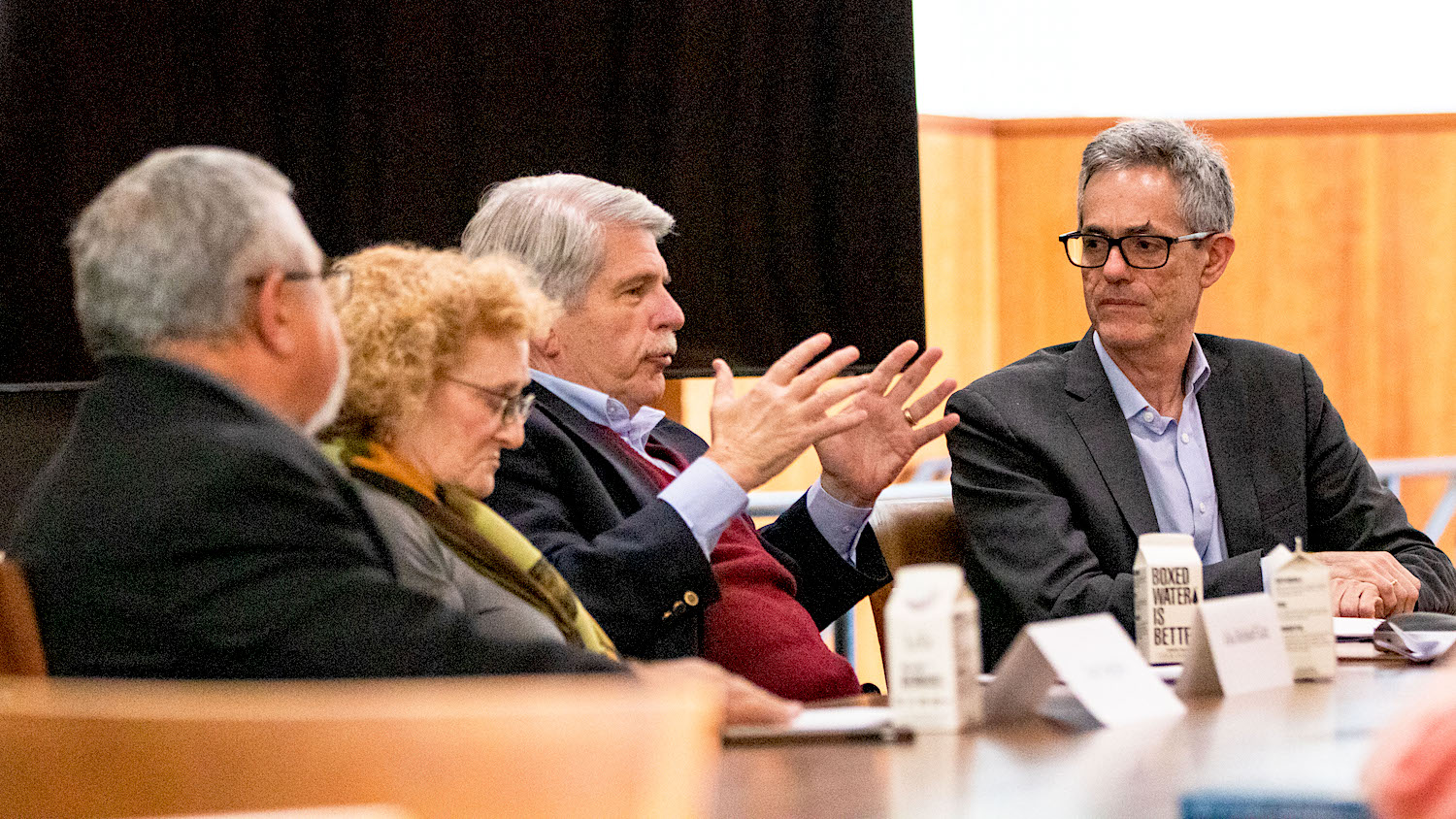
Yaroslavsky Memoir Offers Lessons for L.A. and Beyond
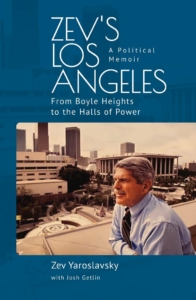 A newly published political memoir by Zev Yaroslavsky weaves tales from his life and family with a half-century arc of Los Angeles history, which he helped shape as a longtime fixture in the region’s civic life. “Zev’s Los Angeles: From Boyle Heights to the Halls of Power,” shares stories about Yaroslavsky’s early years as the son of Ukrainian Jewish immigrants, his entry into social activism as a young man, and his four decades serving on L.A.’s City Council and County Board of Supervisors before joining UCLA Luskin as director of the Los Angeles Initiative. While in public office, Yaroslavsky championed health care, transit, police accountability, fiscal stewardship, the arts and the environment in Los Angeles. The book, however, reaches beyond borders. “The stories I’m telling aren’t just vivid historical moments. Each one offers lessons about how to use power, how to make government listen to the people it serves, and how to bring about change — all without sacrificing one’s values or integrity,” Yaroslavsky writes. At a June 6 event at Royce Hall hosted by the UCLA Luskin Center for History and Policy, Yaroslavsky discussed the book with UCLA Professors David Myers and Gary Segura and Alisa Belinkoff Katz, co-director of the Los Angeles Initiative. The conversation delved into how far the city has come, but also how the struggle continues against income inequality, homelessness, racial tension and other societal ills. “Zev’s Los Angeles” is dedicated to Yaroslavsky’s late wife, Barbara Edelstein Yaroslavsky, whose legacy is enshrined in her decades of community service “performed with grace, generosity and love.”
A newly published political memoir by Zev Yaroslavsky weaves tales from his life and family with a half-century arc of Los Angeles history, which he helped shape as a longtime fixture in the region’s civic life. “Zev’s Los Angeles: From Boyle Heights to the Halls of Power,” shares stories about Yaroslavsky’s early years as the son of Ukrainian Jewish immigrants, his entry into social activism as a young man, and his four decades serving on L.A.’s City Council and County Board of Supervisors before joining UCLA Luskin as director of the Los Angeles Initiative. While in public office, Yaroslavsky championed health care, transit, police accountability, fiscal stewardship, the arts and the environment in Los Angeles. The book, however, reaches beyond borders. “The stories I’m telling aren’t just vivid historical moments. Each one offers lessons about how to use power, how to make government listen to the people it serves, and how to bring about change — all without sacrificing one’s values or integrity,” Yaroslavsky writes. At a June 6 event at Royce Hall hosted by the UCLA Luskin Center for History and Policy, Yaroslavsky discussed the book with UCLA Professors David Myers and Gary Segura and Alisa Belinkoff Katz, co-director of the Los Angeles Initiative. The conversation delved into how far the city has come, but also how the struggle continues against income inequality, homelessness, racial tension and other societal ills. “Zev’s Los Angeles” is dedicated to Yaroslavsky’s late wife, Barbara Edelstein Yaroslavsky, whose legacy is enshrined in her decades of community service “performed with grace, generosity and love.”
Listen to a conversation with Yaroslavsky on the Center for History and Policy’s “Then and Now” podcast.
View photos from the book event on Flickr.
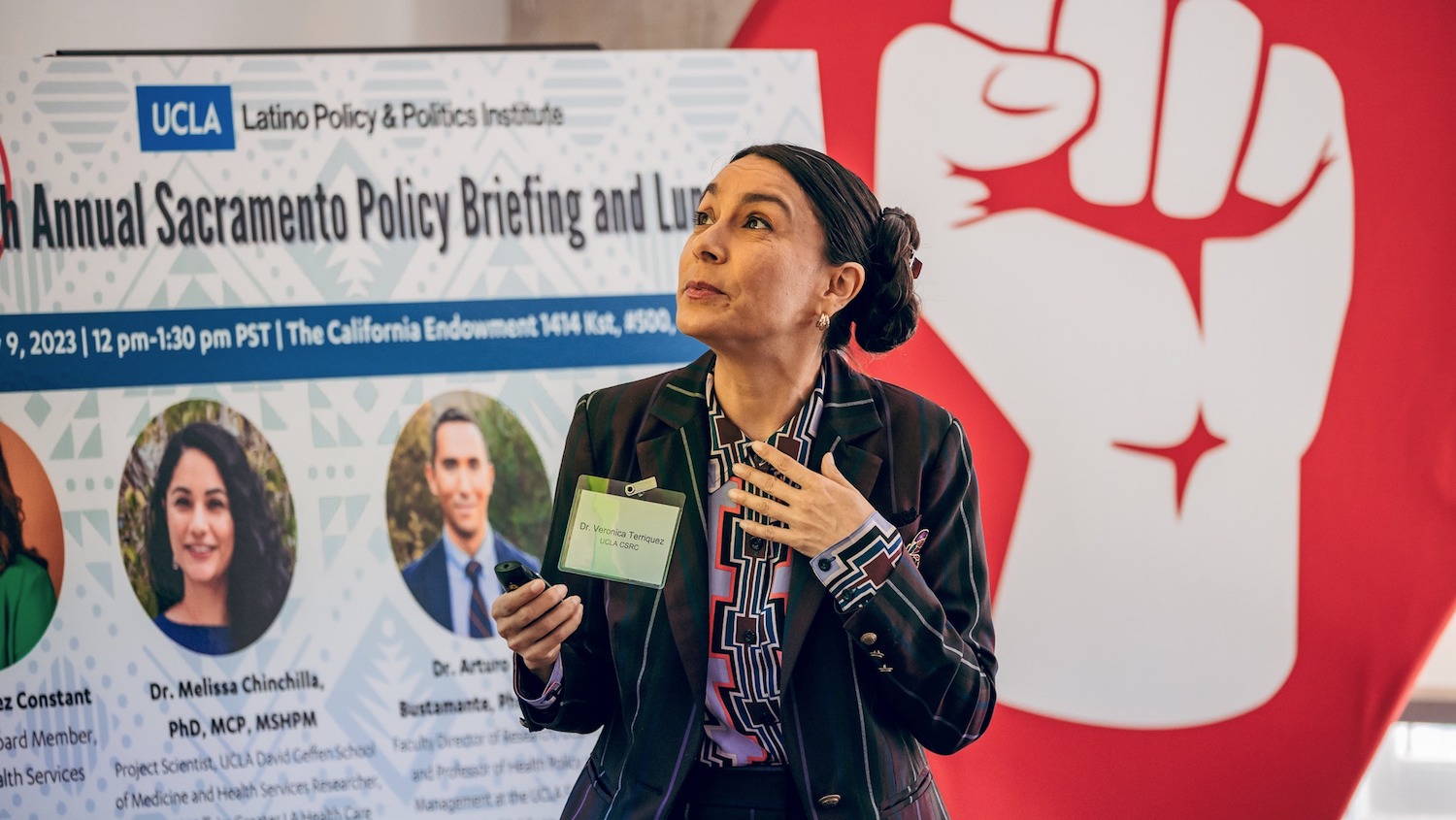
UCLA LPPI Hosts Policy Briefing at State Capitol
The UCLA Latino Policy & Politics Institute brought policy experts, advocates and state leaders together May 9 at the state Capitol for its fourth annual policy briefing to discuss critical issues affecting the Latino community. The session reflected UCLA LPPI’s commitment to strengthening the Latino presence at the Capitol and ensuring that state leaders know that every issue is a Latino issue. With over 20 legislative offices and community partners represented, the briefing served as an opportunity to hear directly from UCLA LPPI faculty experts covering COVID-19 recovery, housing insecurity and Medi-Cal expansion. Veronica Terriquez, director of the UCLA Chicano Studies Research Center and a professor of urban planning at UCLA Luskin, kicked off the expert research presentations with a focus on the impact of COVID-19 on Latino youth as they transitioned to adulthood. UCLA LPPI faculty expert Melissa Chinchilla then presented on the growing crisis of Latino homelessness and offered policy recommendations to address some of the underlying issues with housing services. Arturo Vargas Bustamante, UCLA LPPI faculty director of research and professor at the UCLA Fielding School of Public Health, ended the day with a discussion of important implementation issues related to expanding Medi-Cal access to undocumented adults age 50 and older. The community briefing offered strong policy recommendations to create transformative change for the Latino community and other communities of color throughout the state of California. — Janine Shimomura
View photos and a highlight video from the policy briefing.
